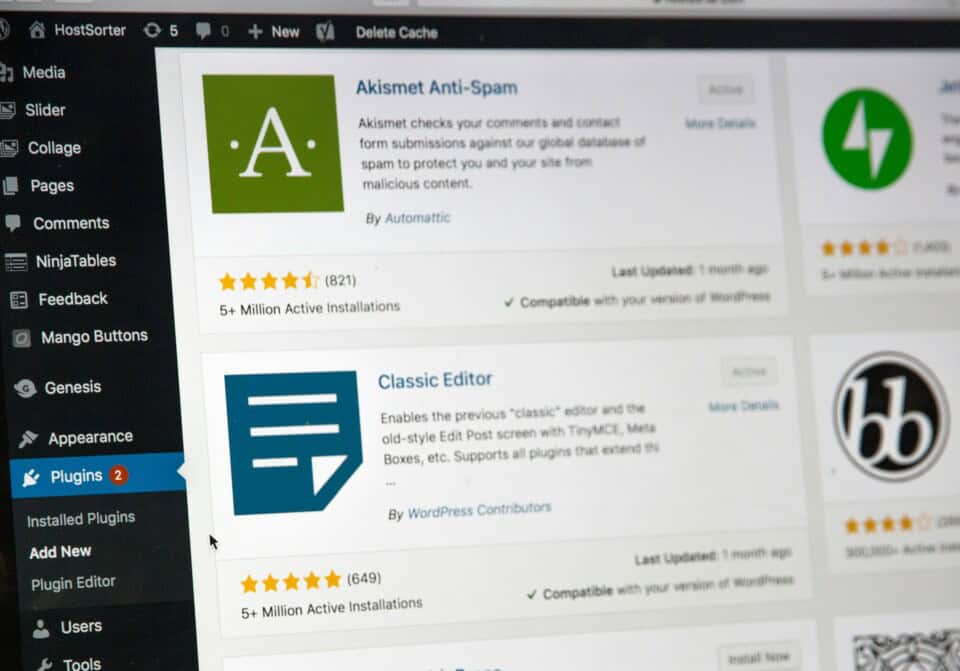Web security stands as one of the core necessities every online business must prioritise. As more businesses move online, the risk of cyber threats becomes a pressing concern. For small and medium-sized businesses, ensuring the safety of their websites is pivotal. SSL certificates serve as a protective barrier, offering a shield against potential cyber threats. These certificates are crucial because they ensure that both your business data and your customers’ sensitive information remain private and secure. Without them, the door may be left open for cyber threats, potentially harming your business reputation and customer trust.
Imagine driving a car without seat belts. It can pose a risk not just to you but to everyone on board. Similarly, operating a website without an SSL certificate exposes you to unnecessary dangers. SSL certificates play a vital role in maintaining not just security but also trust. They aren’t just technical jargon meant for IT professionals; they are essential tools for building credibility with your visitors and keeping your business safe from online threats.
What Is An SSL Certificate?
Understanding SSL certificates doesn’t need to feel like deciphering a complex puzzle. SSL stands for Secure Sockets Layer, a standard security protocol for establishing encrypted links between a web server and a browser. Put simply, it ensures that any data transferred between your website and its users remains confidential and safeguarded.
When you glance at your browser and see a padlock symbol in the address bar or notice the URL begins with HTTPS, you’re looking at the visible signs that an SSL certificate is active. These indicators signal to users that the website is secure, providing peace of mind as they browse or complete transactions. The encryption process behind SSL involves transforming data into a code to prevent unauthorised access. It’s like sending a letter in a locked box that only the recipient has the key to.
By adopting SSL, you aren’t just safeguarding data; you’re also enhancing user confidence. In a world where data breaches are news headlines, having that small padlock symbol can make the difference between gaining or losing a customer’s trust.
Benefits Of Using SSL Certificates
SSL certificates provide a wide range of advantages, making them a must-have for any website. Firstly, they enhance security by protecting sensitive information like customer data and payment details. This means your visitors can confidently browse your site, knowing their personal information is safe from prying eyes.
Secondly, SSL certificates positively influence trust and credibility. When visitors spot the padlock icon or the HTTPS in your address bar, they know your site takes security seriously. This boost in confidence makes visitors more likely to interact with your site, fill out forms, or make purchases.
Having an SSL certificate can also improve your site’s search engine rankings. Search engines prefer secure sites, which can give your website an advantage over others. Finally, it’s a step towards compliance with various industry and legal standards regarding data protection, ensuring you’re not just protecting your site but also aligning with necessary protocols.
The Impact Of Not Having An SSL Certificate
The absence of an SSL certificate can significantly impact your website in various ways. Without it, your site is at risk of data breaches where hackers can intercept sensitive data. This can lead to severe consequences for both your business and your customers, like financial loss or identity theft.
Moreover, the lack of SSL can deter potential customers. When visitors land on a site and see browser warnings about security issues, they might think twice before continuing. Such warnings can erode trust and drive traffic away from your site.
Not having SSL can also hurt your SEO efforts. Search engines may rank unsecured sites lower, pushing your site further down the search results. This makes it harder for potential customers to find you. Plus, browsers explicitly warn users if a site isn’t secure, urging them to proceed with caution, which can create a negative first impression.
How To Get An SSL Certificate For Your Website
Securing an SSL certificate for your website is a straightforward process, yet it’s essential to do it right. Here’s how you can start:
1. Choose Your Certificate Type: Decide whether you need a single domain, wildcard, or multi-domain certificate based on your needs.
2. Generate A Certificate Signing Request (CSR): This is a coded text piece communicated to the certificate authority to request a certificate.
3. Submit That CSR To A Trusted Certificate Authority (CA): Pick a CA that’s credible, such as Let’s Encrypt or Comodo.
4. Install The Certificate On Your Server: After approval, install the SSL certificate on your web server following provided instructions.
5. Configure Your Website: Ensure that your website is accessible over HTTPS, and update all internal links.
To ensure this process runs smoothly, consult with experts who can help, guaranteeing you get the right SSL certificate to meet your needs.
Secure Your Site Today
Understanding and implementing SSL certificates is an integral step in safeguarding your website and maintaining trust with your audience. With cyber threats ever-present, the need for such security measures has never been more immediate. Ensuring your website has an SSL certificate not only protects data but it also fortifies your business’s reputation, ensuring customer confidence and loyalty.
Taking proactive steps toward securing your website demonstrates a commitment to protecting both your business and your customers, fostering an environment of trust and professionalism. Your website’s security is not just about compliance and standards; it’s about securing a credible business future in an increasingly digital world.
Integrating SSL certificates into your website’s security plan is a smart move that opens the door to greater trust and improved rankings. If you’re aiming to enhance your site’s effectiveness and security, consider working with websites consulting in Edinburgh to navigate the options available. At Nimble Digital UK, we’re ready to lend our expertise and help you through the process, ensuring your online platforms remain secure and reliable.



